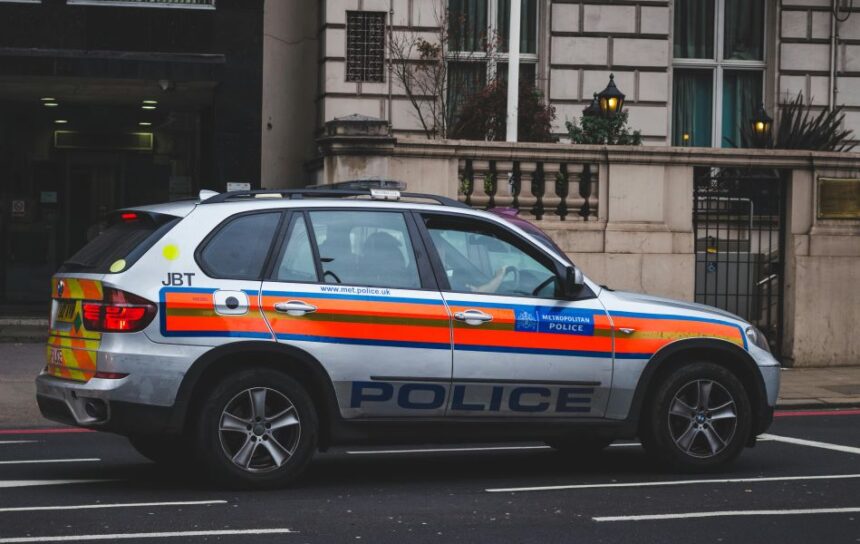Many Colorado residents and visitors wonder, Do you have to identify yourself to the police in Colorado? This question often arises during police encounters, especially when stopped without a clear explanation. While law enforcement officers have the authority to ask questions, your obligation to respond depends on specific circumstances defined by Colorado law.
Like many states, Colorado follows the “stop and identify” principle in certain situations. However, this doesn’t mean you must always provide identification or personal details on request. The answer depends on whether the officer has reasonable suspicion of a crime, whether you’re being detained or arrested, and whether you’re operating a vehicle. Misunderstanding your rights can lead to unnecessary legal consequences—or missed opportunities to protect your civil liberties.
This article explores when you must legally provide your name or identification in Colorado, what the law says about these interactions, and how to assert your rights respectfully and lawfully. We’ll cover exceptions, best practices, relevant statutes, and common myths surrounding identification during law enforcement stops. If you’ve ever asked, “Do you have to identify yourself to the police in Colorado?” This guide is your essential roadmap.
Do you have to identify yourself to the police in Colorado?
In Colorado, you must identify yourself to police only if you’re lawfully detained and they have reasonable suspicion of a crime. Otherwise, you’re not required to.
The Legal Foundation of ID Requirements in Colorado
Colorado’s identification laws are rooted in state statutes and Supreme Court precedent. One primary legal reference is Colorado Revised Statutes 16-3-103, which outlines when an officer may stop someone based on reasonable suspicion. Under this law, if an officer has a valid reason to detain you, they may ask for your name and address. However, you’re not always required to show a physical ID unless you drive or engage in a licensed activity.
The 2004 Supreme Court case Hiibel v. Sixth Judicial District Court of Nevada also plays a role. It upheld that states can require identification during lawful stops. Colorado’s law allows officers to ask for your name during such interactions in line with this ruling. Still, it does not compel you to carry or produce an ID card unless another law specifically requires it.
Understanding these legal roots is critical because it affects whether your interaction is voluntary or compelled. Knowing what qualifies as a “lawful stop” and when you’re truly free to go can make the difference between asserting your rights and accidentally escalating a situation.
When Are You Required to Identify Yourself in Colorado?
Knowing when you’re legally required to identify yourself to the police in Colorado can help you avoid misunderstandings and protect your rights during an encounter. Your obligation depends on the situation and the officer’s authority to stop or question you.
During a Lawful Detention
One of the most common scenarios where identification may be requested is during a lawful detention. Under Colorado law, if a police officer has reasonable suspicion that you are involved in criminal activity, they may legally detain you for a short period and ask for your name and address. While you’re not required to show a physical ID, you must truthfully provide your name when lawfully detained.
While Operating a Vehicle
If you’re driving in Colorado and are stopped by law enforcement, you are legally required to present your driver’s license, vehicle registration, and proof of insurance. Failing to do so can result in citations, further questioning, or even arrest. These requirements are standard nationwide and are part of Colorado’s broader public safety laws.
When Arrested
Once you’ve been formally arrested, you are required to provide your identification. Refusal to do so at this stage could lead to additional legal consequences, including charges for obstruction or hindering law enforcement.
In Regulated Areas
There are also scenarios outside of police stops where an ID is required. For instance, entering a federal building, boarding an airplane, or participating in certain governmental functions may mandate identification due to federal or administrative guidelines.
If You’re a Passenger
Passengers in a vehicle are not automatically required to show ID during a traffic stop. However, if the officer reasonably suspects a passenger is involved in illegal activity, they may request identification.
Points to Know About Identification Laws in Colorado
If you’ve ever asked Do you have to identify yourself to the police in Colorado, these essential facts will help you navigate that situation confidently and legally:
- You Are Not Always Required to Carry ID: Colorado law does not require identification in most public places unless you’re driving or entering a restricted facility.
- Providing Your Name Verbally Is Often Enough: When lawfully detained, you may be required to state your name and address. However, showing a physical ID isn’t always mandatory unless specific laws apply.
- Refusal Can Lead to Prolonged Encounters: Even if you’re within your rights, refusing to identify yourself during a valid stop may trigger more extended detentions or additional questioning by officers.
- Drivers Must Provide Documentation: If you’re operating a vehicle, you are legally required to show your driver’s license, registration, and proof of insurance upon request.
- Minors May Follow Different Rules: Youths involved in school-related or juvenile cases may encounter different identification expectations set by school policies or juvenile law.
- Recording May Offer Legal Protection: If it’s lawful, recording your interaction—or relying on officer bodycams—can provide evidence of how the stop was handled and support your legal position if a dispute arises.
Rights, Risks, and Responsibilities During Police Encounters
When a police officer approaches you in Colorado, you must remain calm and assess the situation. Ask respectfully, “Am I free to leave?” If you’re not being detained or arrested, you are not required to provide identification or answer questions. However, suppose the officer has reasonable suspicion and detains you. In that case, Colorado law may require you to state your name and address, though you are still protected under the Fifth Amendment and don’t have to answer further questions without legal counsel.
Complying with lawful commands, avoiding sudden movements, and keeping your hands visible can reduce the risk of escalation. While asserting your rights is essential, doing so politely is key. Refusing to identify yourself during a lawful detention can result in being held longer or potentially charged with obstruction. Knowing the difference between exercising your rights and resisting authority can protect your legal standing and safety.
Do You Have to Identify Yourself to the Police in Colorado? Breaking Down the Myths
There are many misunderstandings about when and how you must identify yourself to law enforcement in Colorado. Clarifying these myths is essential for knowing your rights and avoiding unnecessary trouble during police encounters.
1. Police cannot demand ID at any time: Officers in Colorado are only allowed to request identification if you are lawfully detained or stopped while driving. If there is no legal reason to detain you, you are not required to show ID.
2. You are not required always to carry ID: Colorado does not have a law that forces individuals to carry identification in public spaces at all times. ID is only mandatory in specific situations, such as while driving or in restricted areas.
3. Remaining silent is not against the law: Outside of providing your name during a lawful detention, you are entirely within your rights to remain silent and decline to answer further questions without legal representation.
4. Drivers are not the only ones who must identify: Pedestrians must also give their name if lawfully detained based on reasonable suspicion. The rule is not limited to vehicle operators.
5. Refusing to identify does not prove guilt: Choosing not to identify yourself does not automatically mean you are guilty of anything. However, depending on context, it may lead to additional questioning or temporary detention.
Final Remarks
So, do you have to identify yourself to the police in Colorado? Yes—but only under certain legal conditions. You must provide your name during a lawful detention or arrest, and drivers must always show ID when stopped. The law does not compel you to identify yourself outside of those situations. Understanding these boundaries is crucial for protecting your rights while interacting with law enforcement. Whether on foot, in a vehicle, or attending a protest, knowing when you’re required to comply can help prevent unnecessary complications. Colorado’s laws aim to balance safety and freedom, but that balance relies on knowing your rights, asking the right questions, and staying calm and informed during every interaction.
FAQ’s
Do I have to show ID to police in Colorado if I’m not driving?
Not always. Unless you’re being lawfully detained with reasonable suspicion of a crime, you are not legally required to present identification.
Can I be arrested for refusing to identify myself?
Only under lawful detention or arrest. You may face arrest or additional charges if you refuse to give your name when the law requires.
Do passengers have to show ID during a traffic stop?
Generally no. However, if the officer reasonably suspects the passenger is involved in illegal activity, they may request ID.
What happens if I lie about my identity?
Lying to the police is a criminal offense. It can result in charges such as obstruction, criminal impersonation, or interfering with law enforcement.Can I record police if they stop me in Colorado?
Yes, you can legally record public officials in public areas, as long as you don’t interfere with their ability to perform official duties.











